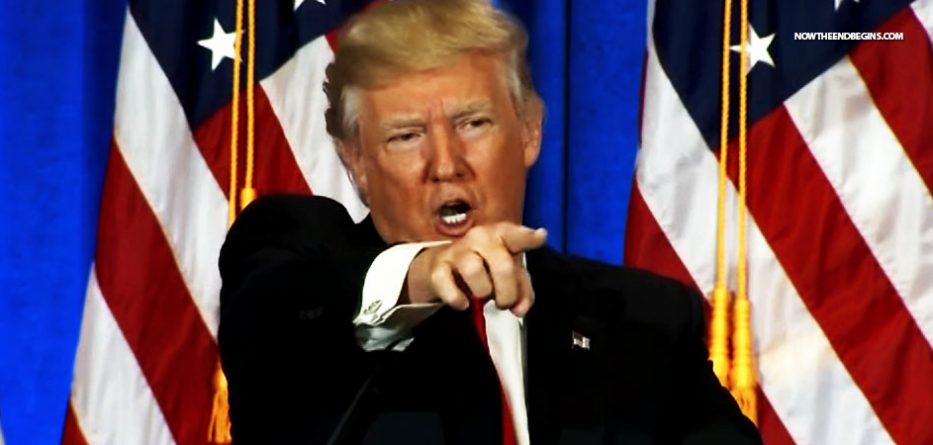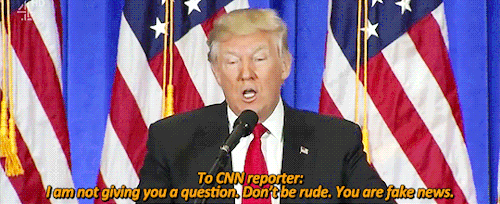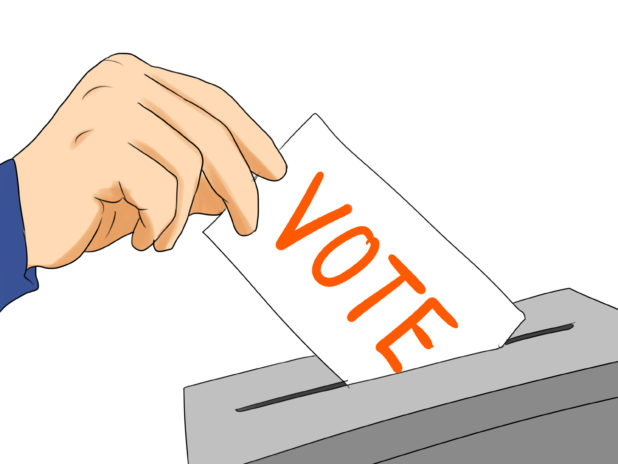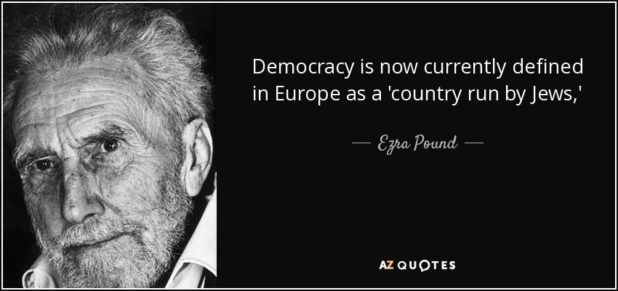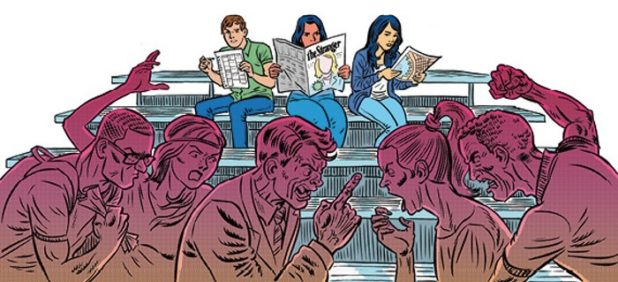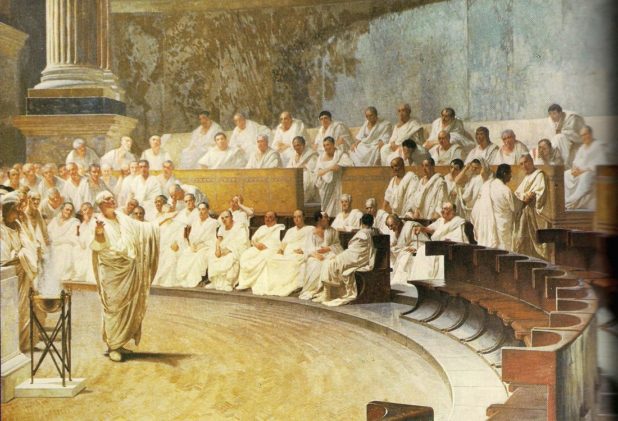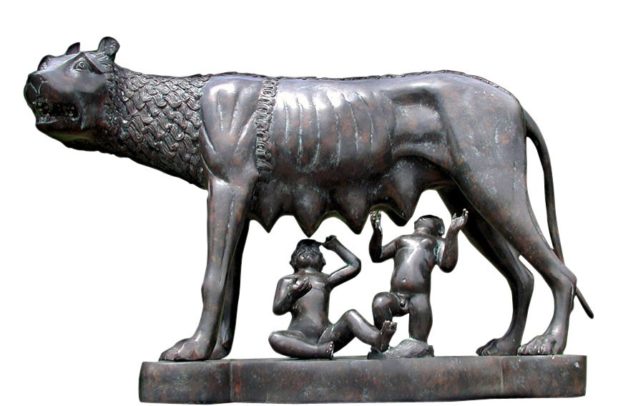Andrew Anglin
Daily Stormer
July 13, 2018
We’ve got another round of stories talking about the threat of fake news to democracy.
Because people cannot determine the difference between truth and falsehood, apparently and/or allegedly, and this means they don’t know who they’re supposed to vote for.
The way this is being analyzed is fascinating. What they are clearly trying to lead people to is that the only way “democracy” can work is if free speech is banned and only a centralized, government-run body is allowed to decide what the people are or are not allowed to hear.
AFP:
False information is saturating political debate worldwide and undermining an already weak level of trust in the media and institutions, spreading further than ever on powerful social networks.
US President Donald Trump has popularised the term “fake news”, using it mainly as an accusation levelled at the media, and it is increasingly used by politicians from Spain to China, Myanmar or Russia.
“Fake news” has been generalised to mean anything from a mistake to a parody or a deliberate misinterpretation of facts.
At the same time, the proliferation of false online information is increasingly visible in attempts to manipulate elections, notoriously surrounding Trump’s 2016 victory.
– Misinformation –
Nearly two years after Trump’s shock win, debate is still raging on the impact of “fake news” on the presidential campaign.
…
Misinformation had “a significant impact” on voting decisions, according to Ohio State University researchers, who questioned voters about whether they believed certain false stories.
The researchers said it was impossible to prove that false information had changed the course of the election but noted it would have required a change in just 0.6 percent of voters, or 77,744 people, in three key states, to alter the electoral college outcome.
Since the election, Trump has denounced as “fake news” any information that displeases him while his aides have offered a mixture of truth and distortions, sometimes described as “alternative facts.”
This has hurt the credibility of the US news media and led some to describe the current period as a “post-truth era” — an age without a shared reality.
“The truth is no longer seen as important,” said John Huxford of Illinois State University, whose research focuses on false information, adding that “lies and fabrication even seem to bolster one’s reputation and political prowess among their core supporters.”
Some studies suggest that more people are willing to believe falsehoods as partisanship has risen. A 2017 survey, for example, showed that 51 percent of Republicans believed that Barack Obama was born in Kenya, despite the hoax being debunked dozens of times.
Many people reject accurate information which is “discomforting to their self-concept or worldview,” noted a study by Professor Brendan Nyhan of Dartmouth College in the United States and Jason Reifler of the University of Exeter in the UK.
“Some misinformed individuals may already be at least tacitly aware of the correct information but (are) uncomfortable acknowledging it.”
– Eroding trust –
In 2018, the average level of trust in the news, across 37 countries, remained relatively stable at 44 percent, according to a poll by YouGov for the Reuters Institute for the Study of Journalism.
But Reuters Institute research associate Nic Newman warned in text accompanying the report: “Our data show that consumer trust in news remains worryingly low in most countries, often linked to high levels of media polarisation, and the perception of undue political influence.”
This is exacerbated by the spread of false information by authority figures. In some countries this can go far. For example in Ukraine, where authorities staged the death of Russian journalist Arkady Babchenko at the end of May. Kiev said the move was justified to foil a real plot to assassinate Babchenko.
The staging, broadcast in good faith by media worldwide, “is a godsend for paranoid people and conspiracy theorists. At a time when confidence in news is so low, a state playing with the truth in this way makes things even more complicated,” said Christophe Deloire, secretary general of journalism watchdog Reporters Without Borders.
…
Trust in traditional media remains higher than for social networks, according to the YouGov poll. Only 23 percent of those polled said they trusted the news they found on social media.
More than half (54 percent) agreed or strongly agreed that they were concerned about what is real and fake on the internet.
“The very fact that so many people are circulating a piece of misinformation gives it credibility,” said Huxford, of Illinois State University.
A study released by the Massachusetts Institute of Technology (MIT) in March found that false news spreads more rapidly on Twitter than real news does.
So then.
Where to start?
Firstly, I agree that the normal person cannot distinguish between truth and falsehood. This is why the concept of universal suffrage democracy (a governmental system where every single person over 18 is allowed to vote) is utterly nonsensical, and always has been.
Even assuming that the primary assumption in the defense of universal suffrage democracy – that each person is an equally capable individual – is somehow true (it is not true, but assuming it is), the information they are absorbing is coming from somewhere. These individual voters are not personally witnessing every world event with their own eyes. So whoever is feeding them the information is in control of what they base their decisions upon. And whether these information outlets are controlled by the government or private entities, there is bias in whoever is delivering them, and it is impossible to assume that none of them are letting their bias influence the information they choose to report, or the way they choose to report it – or even, I daresay, the accuracy of the information itself.
But the secondary assumption of universal suffrage democracy is just that: that legacy mainstream media was fundamentally truthful, whether run by the government or private entities. Before the advent of the internet, media was always 100% truthful, and if there was misinformation reported, or some particular event of low importance focused on while some event of large importance was dismissed or not reported on, it was simply an accident.
Furthermore, even if each individual is exactly the same and perfectly capable of rational decision-making, and the old mainstream media is always telling the truth as if it is the voice of God Himself, surely we cannot assume that each individual has both the time and interest to absorb all of this information. So people rely on the media to summarize what is important, which enters an even more gray area, where no one can argue that objectivity is possible.
This modern concept of universal suffrage democracy is dependent on the mechanism of distribution of information, and absolute trust in that mechanism.
Throughout the history of this system, that mechanism of information distribution – whether it be the government or a private entity – was almost entirely controlled by an elite class.
This is no longer true.
The internet has allowed for all types of information to be shared, and for individuals to give their own information – true or false – to whoever is willing to listen to it.
They are now declaring that it is impossible for democracy to function under such circumstances.
What that means is that they are admitting that the outcome of democracy was always based on the control of information by the elite class, meaning that “democracy” never represented “the will of the people” but rather the will of those who controlled the information.
I Agree That Universal Suffrage Democracy Cannot Work
These people are not calling for an end to universal suffrage democracy. What they are calling for – or at the very least hinting at strongly – is a return to elite control of all information.
Because if “fake news” can change the outcome of an election, then the reverse is also true: the results of every election in history, since the dawn of mass media, was determined by those who controlled the media.
Although I prefer open access to information within this democratic system, as it at least gives people a chance, they are correct in their statements that people cannot be trusted to determine fact from fiction, meaning that universal suffrage democracy is necessarily an absurd system with which to run a government.
The Solution: Limited Suffrage Democracy
When the Democratic Republic of the United States of America was founded, suffrage was limited.
In order to vote, a person had to be:
- A citizen
- White
- Male
- A landowner
All Western governments had roughly the same requirements for voting, going back to the original democratic systems of Greece and Rome.
This controlled for intelligence and ability, and also ensured that the voter had a stake in the future of the society.
This meant that the eligible voter was likely to be much better informed than a random peasant, and was much more likely to be voting in the interests of the society.
Of Course
There is a reason that universal suffrage democracy has been promoted as the sole viable system of government for every nation on the planet, and that is because, combined with a controlled distribution of information, it means eternal rule by an elite minority.
This system will not be reversed without revolution.
So the natural thing for the system to do is attack the free distribution of information by regulating the internet.
They will simply ignore the facts I’ve mentioned here – the fact that if “fake news” can change an election, then people are not the universally discerning individuals that it is assumed they are, and all elections are changed by mainstream news, and that it is absurd to simply assume that mainstream news is always accurate.
It is a very bizarre thing to witness, this claim that free access to information limits the freedom of democracy, as if their primary assumption is true, it should do the opposite.
